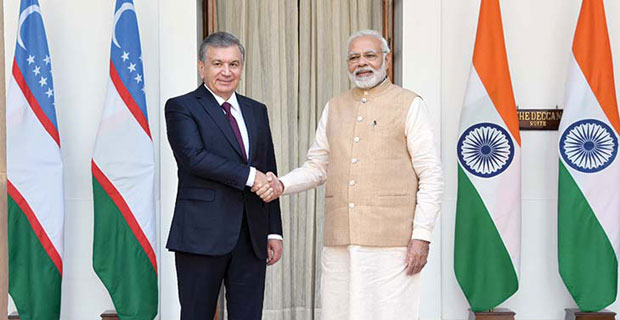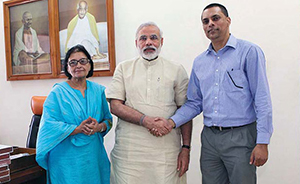India, Uzbekistan set USD 1 Billion trade target
India and Uzbekistan set an annual bilateral trade target of USD 1 billion to be achieved in two years and agreed to cooperate ...
India and Uzbekistan set an annual bilateral trade target of USD 1 billion to be achieved in two years and agreed to cooperate in counter-terrorism efforts as the two sides signed 17 agreements across a range of sectors following delegation-level talks led by Prime Minister Narendra Modi and President Shavkat Mirziyoyev in New Delhi in October.
They also agreed to further strengthen their Strategic Partnership and boost connectivity in a significant manifestation of India's increasing engagements with Central Asia. "We have agreed to strengthen trade and investment ties and have set a bilateral trade target of $1 billion by 2020," Mr Modi said in a joint address to the media with President Mirziyoyev after the talks. "We have also decided to start negotiations for a preferential trade agreement."
Bilateral trade stands at around USD 350 million now. According to a joint statement, both sides called for further promotion of investment. "They noted the favourable conditions for investment by Indian companies in Uzbekistan, including in the framework of the special economic zones and free pharmaceutical zones," it stated. Both countries positively assessed the establishment of an Uzbek-Indian Business Council between industry body CII and the Chamber of Commerce and Industry of Uzbekistan. Mr Modi said India had decided to extend a line of credit (LoC) of USD 200 million to Uzbekistan for housing and other social infrastructure projects.
"We will welcome Uzbekistan's proposals under USD 800 million line of credit and buyer's credit from Exim Bank," he said. "We have proposed to help Uzbekistan in the areas of space, human resource development and IT."











Comments.